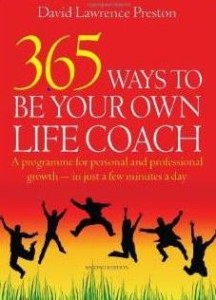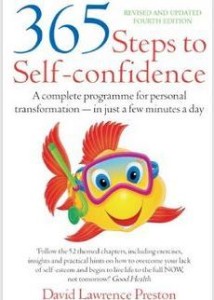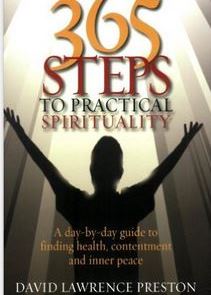We all want to be happy, but what is happiness? And what makes us happy?
How happy are you? Give yourself a mark out of ten, where ten means blissfully happy in every way, and zero means totally miserable all the time.
Most people exist somewhere between 5-8, not totally happy but not miserable enough to do anything about it. Why? The problem is, many of us have adopted beliefs that make it hard to be happy.
What chance have you got if you believe you have to earn happiness or that it’s selfish or irresponsible to seek it?
Can happiness be learned or taught?
Some believe that some people are just born ‘the happy type’, but recent studies suggest that this is not entirely true. It seems that happiness can be taught.
We know, for example, that happy people tend to be hopeful about the future. They assume things will work out alright and don’t indulge in blame and self-pity if things go wrong. They don’t rely on money and ‘stuff’ to make them happy, but they know how to get the most out of it. They have a wide circle of friends and don’t take themselves too seriously. They’re able to laugh at life – and themselves.
All of the above traits can be learned, although there are opposing views on how we should go about it. Some believe that you can set happiness as a goal, just as you would work on your next career move, and work towards it. The argument goes something like this:
‘If you were totally in control of your life, healthy, free from worry, prosperous, had good family relationships and lots of friends, an enjoyable and fulfilling career, rewarding hobbies, social activities and fun, and were loved and respected by others, would you be happy? The obvious answer is yes. And since all these can be set as goals, planned and worked for systematically, it follows that happiness, too, can be tackled in this way.’
Try it. You’ll find it works – to some extent, depending on where you’re starting from, but you’ll find that you eventually hit an invisible barrier. Why?
- People who set impossible goals become frustrated by the gap between their aspirations and their attainments. Keep your sense of direction (aimlessness is a serious threat to contentment), but don’t be obsessed by it. Research has repeatedly shown that happiness is unrelated to wealth (once you have enough to feed, clothe and house yourself, each extra £, $ or € makes little difference), intelligence, educational attainment or age.
- Happiness can only exist in the here and now. It’s a fallacy to think that happiness will arrive when some future event takes place. ‘When…. then I’ll be happy,’ simply doesn’t work. Fill in the gap any way you like – ‘when I achieve all my goals,’ ‘when I make a million,’ ‘when I meet the man or woman of my dreams,’ and so on. Unless you already have the foundations of happiness in place, they are unlikely to make much difference.
- Goals anticipate and look to the future, but happiness can only exist in the here and now. Entertainer David Baddiel put it like this: ‘My idea of perfect happiness is not having to believe that happiness resides elsewhere.’
You will never be happy if your happiness depends on your achievements. Have a sense of purpose and goals to aim for, and enjoy the process. If you succeed – great! If you don’t, at least you’ve had fun trying.
To return to the question, ‘Can happiness be taught as a skill?’ – Yes it can. Happiness is a combination of attitude and emotion, and the key to changing attitudes and emotions is the I-T-I-A Formula (see below).
Happiness is an inner state.
You can’t buy happiness, nor sell, drink, drive or wear it. You can’t see, hear, smell, taste or touch it. You can’t go on holiday to it, or give it or receive it as a gift. In other words, it cannot be determined by factors external to yourself. Some live in poverty, yet are happy. Others (including many famous and successful people) are worth millions, but are not.
Applying the I-T-I-A Formula to happiness
I-T-I-A stands for Intention, Thinking, Imagination and Action.
Intention
Are you willing to be happy? This may seem a trite question, but it’s not. Some would have to give up certain things if they became happy, such as sympathy from others and attention.
You are responsible for your happiness. How can it be any other way? If your happiness depended on the feelings, actions and words of others, how could you ever be truly happy, since you cannot control any of these things?
Thinking
- What absolutely must happen in order for me to feel happy?
- What would I prefer to happen for me to feel happy?
- What would be nice, but not absolutely essential?
Your answers define your rules for happiness. Over zealous rules can destroy your chances of being happy.
- Realise that happiness is not an absence of problems. Life is a school. Every event, every obstacle has something to teach you so look for the lesson. See problems as challenges that can be turned into opportunities and learning experiences.
- Let go of the need to be right. Would you rather be right, or would you rather be happy? It’s hard to be both.
- Look on the bright side. Focus on pleasant, happy things and count your blessings.
- Happiness demands complete self-acceptance. If you’re not happy, this is the place to start. No amount of accomplishments and possessions can make up for a lack of self-acceptance.
- Understand that happiness does not equal fun. Happy people certainly have fun, but happiness and fun are not the same. Fun activities help us temporarily forget our problems – but they do not bring permanent happiness, because the effect fades once the fun ends. Fun is what you feel during the activity; happiness is an on-going state of being experienced before and after. If you rely on fun to bring happiness, you’ll have an empty feeling once the party is over because you’re not addressing the real issues that bring the genuine thing.
- Embrace change. Change is a natural and inevitable part of life. There’s a saying attributed to Helen Keller:
‘When the door of happiness closes, another opens; but often we look so long at the closed door that we don’t see the one which has been opened for us.’
Imagination
Imagine yourself surrounded with happiness, feeling happy, enjoying life, cheerful and contented no matter what is going on around you. Your unconscious will take this as an instruction to create happy feelings for you. Try it – it works!
Action
- Mix with happy people. Happiness rubs off. So does unhappiness. It’s hard to be happy when surrounded by unhappy people, so mix with people who know how to enjoy themselves. Life is meant to be fun! Comedian Victor Borge described laughter as, ‘The shortest distance between two people.
- Laugh loud and laugh often. The ability to laugh is a good indicator of mental health. It also alters your body chemistry – endorphins (the ‘happy hormones’) are released into the bloodstream bringing a feeling of well-being. When you’re happy, your body is relaxed, your facial expression changes and you laugh often. It also works in reverse. If you laugh often, it makes you feel better.
- Smile often. Every time you pass a mirror or see yourself in a shop window, smile. Also, practise the ‘inner smile’ – the more you smile inwardly to yourself, the more you will experience a feeling of happiness. If nothing else, other people will wonder what you’re up to.
- Do unto others… The happiest people enjoy helping others. Give – not just material things, but yourself. Make time to listen. Be cheerful (even if you’re having a bad day). Not only will you feel better, you’ll find others return your kindness.
- Be here now.Living in the ‘here and now’ is one of the biggest steps you can take to happiness and peace of mind. How can you be happy if you continually wallow in the past, agonise over old mistakes, wishing you could relive parts of your life, and blaming yourself for wasted opportunities? Stop beating yourself up. Now is the only moment over which you have any control, so make the most of it. If your mind wanders to what might happen tomorrow, bring it back. And finally, remember the last line of ‘Gone With The Wind’ – ‘Tomorrow is another day.’
©David Lawrence Preston, 28.4.2016

Follow me on Facebook and Twitter @Feelinggoodatt

How to Books, 2004





